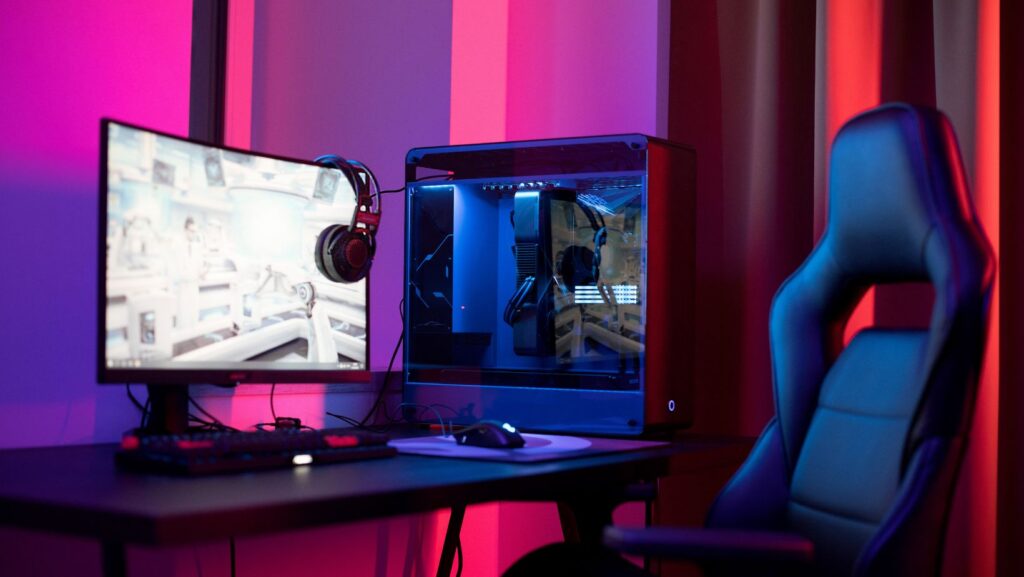
The game world once flowed in a single direction—from developers to you. Today it’s a $200-billion give-and-take where 87 percent of studios weave player feedback into every sprint. Your voice, echoed by millions, steers everything from combat tweaks to monetization experiments.
Player Power: From Consumers to Influencers
Social media turned isolated hobbyists into a global chorus. Forums, Discord servers, and Twitter threads now set development agendas overnight. Slot-streaming influencer NG Slot is a prime example: his live reactions to new features can boost—or bury—a title within hours, forcing studios to pivot in real time.
This clout runs deeper than purchase choices. Your expectations dictate patch priorities, UX tweaks, even launch dates. Loyalty metrics sit beside profit forecasts on publisher dashboards, and community managers mine every comment for actionable intel. By jumping into betas and feedback channels, you’ve become a co-author of the games you play.
Digital Voice: Real-Time Feedback Loops
Through platforms like Twitter, Reddit, and Discord, you’ve become part of a massive feedback mechanism that shapes gaming’s future in real-time. Your ability to stream gameplay, create content, and build communities has transformed marketing dynamics and influenced development priorities.
Social Media and Player Communities
When gaming forums emerged in the early 2000s, they forever changed how developers received feedback. On platforms like Reddit and Discord, community discussions now influence everything from patch updates to future features.
These platforms have created unprecedented transparency between developers and players. Studios monitor these channels to track sentiment, identify bugs, and gather suggestions. Many gaming companies now employ dedicated community managers to maintain these critical communication channels.
The Streaming Revolution
Platforms like Twitch and YouTube Gaming have revolutionized how players influence the industry. Content creators now shape purchasing decisions, game popularity, and market trends as millions of viewers tune in daily.
Top streamers regularly consult with game companies, test early builds, and provide vital insights into player preferences. This direct connection between content creators and developers has transformed design decisions and marketing strategies across the industry.
From Testers to Co-Developers
Digital distribution platforms have made early access programs and beta testing powerful tools for gathering real-time feedback. Games increasingly rely on pre-release phases where players help refine mechanics and features before launch.
Whether through closed beta weekends or months-long early access periods, your feedback directly shapes how games evolve from concept to final release. This collaborative approach benefits developers and players, creating more polished and player-focused experiences.
Beyond Playing: The Growth of Gaming Communities
Today’s gaming experiences extend far beyond traditional gameplay through multiplayer features, competitive esports, and user-created content. Eight out of 10 top-selling titles in 2023 featured robust multiplayer components, reflecting the industry’s shift toward social connectivity.
Social Gaming Takes Center Stage
Online communities have transformed single-player games into deeply social interactions. Games with strong multiplayer components typically retain players longer and generate more consistent revenue. Even traditionally solo genres like RPGs now incorporate social elements to meet market demands.

Developers respond to these preferences by creating sophisticated systems that encourage collaboration, competition, and community building. Built-in streaming features, chat systems, and community challenges keep players connected and engaged for months or years beyond the initial release.
Competitive Gaming Goes Mainstream
Esports has transformed gaming from casual entertainment into a legitimate competitive industry worth over $1 billion annually. Major brands invest heavily in sponsorships, recognizing the massive audience reach and engagement potential.
Competitive rankings drive player behavior across multiple game genres, from MOBAs to battle royales. Modern tournament formats accommodate both professional teams and amateur competitors, with tiered leagues and qualification paths creating multiple entry points for participation.
This ecosystem supports professional players, content creators, and analysts while providing fans with numerous ways to engage with their favorite games beyond just playing them.
User-Generated Content Explosion
Equally important is the rise of user-generated content that revolutionizes how games evolve after release. Today’s modding culture transforms single releases into platforms for ongoing creativity, with players developing everything from minor tweaks to complete game overhauls.
Collaborative projects thrive across gaming communities, where dedicated players create custom maps, characters, and storylines that extend games beyond their original scope. Games like Minecraft and Skyrim demonstrate how community support can sustain titles for years through continuous modification.
Smart developers now design with modding capabilities built in, recognizing that community-driven content significantly extends a game’s lifespan and market value.
Demanding Diversity and Inclusivity
Players are increasingly vocal about wanting games that reflect diverse experiences, identities, and cultural perspectives. Games featuring inclusive character options and diverse storylines attract broader audiences and achieve stronger sales performance. In response, 76% of major gaming studios have implemented formal diversity initiatives.
The Call for Representation
Player demand for diverse characters has risen 47% since 2018. Through social media campaigns, forum discussions, and purchasing decisions, gamers actively advocate for broader cultural representation across gaming platforms.
Market data shows games featuring diverse casts and inclusive narratives experience higher engagement rates and stronger community support, proving that representation benefits social progress and business success.
Evolving Content and Themes
Today’s games reflect a dramatic shift in content, featuring more authentic and diverse experiences. Character depth has evolved beyond stereotypes, with protagonists now presenting complex backstories and diverse cultural backgrounds. Genre boundaries continue to blur, creating hybrid experiences that challenge traditional categories.
Supporting Innovation: Beyond Blockbusters
Today’s gamers have raised over $1.3 billion for gaming projects on platforms like Kickstarter since 2009. Your support of niche genres and unique experiences has created viable markets for games that traditional publishers might overlook.
Through direct funding and early access purchases, you actively shape a more diverse gaming landscape where innovative ideas can thrive alongside mainstream titles. Independent developers now account for over 40% of digital game sales, pushing boundaries with experimental mechanics and unique genres.
The Participatory Future of Gaming
The gaming industry now thrives on player insights and collaborative design. Your involvement has become essential through direct feedback channels, user-generated content, and community-driven modifications that expand game worlds and create new possibilities.

This shift toward participatory development continues to revolutionize the entire industry. By embracing your role as co-creator, you’re helping build more engaging, diverse, and innovative gaming experiences that truly reflect what players want.
As the boundaries between developer and player continue to blur, the future of gaming looks increasingly collaborative, creative, and player-driven.










